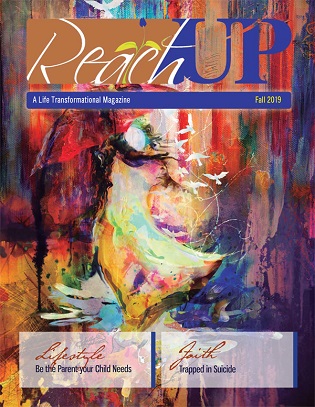Listen Now
“My brother committed suicide a couple of years ago,” Michael explained staring into space. “I had no idea that he would do such a thing. His wife had died of cancer three years before, and I assumed he had gotten over it. My younger brother said that he must not have dealt with her loss well … only stuffed his feelings. Generally speaking though, he was a difficult guy to get next to.”
Identifying a potential suicide victim is not always easy. Yet failure to do so often brings guilt after they are gone.
One of the many things suicide victims like Michael’s brother have in common is their inability to deal with a loss of some kind. Learning how to be a better friend to someone who has experienced a loss can go a long way in preventing suicide.
Loss comes in many forms. The death of a loved one is an obvious loss, but events such as divorce, job loss, friends pulling away, a pet that died, social harassment, health issues, and a general feeling of hopelessness can be hard to deal with well. Instead of viewing these events in the lives of those you know and love with an attitude like “That’s life, deal with it,” make a commitment to longer-term assistance. In other words, true friendship will often be a better response.
Understand that many losses can take weeks and even months to adjust to. You can be a better friend by checking in with your friend about their loss every few weeks or at regular intervals. I suggest reminding yourself by writing on your calendar or setting a reminder on your phone to “check on Michael” in three weeks.
Even a simple question like, “How are you doing today with your feelings about your loss?” can open the topic and bring a bit of healing to their heart.
You can be a better friend in many cases by helping the depressed person talk through how they are doing. Let them “think” out loud about the way they are processing the life issues that have worn them down. Often a little guidance about ways to react to the loss or the act of violence they experienced can be the best thing to help them make decisions about their life.
Depression affects 20-25% of Americans daily with only one-half getting assistance to deal with it. Just coming alongside with concern can be exactly what your friend needs to realize they are not alone and that they do matter to someone.
They may tell you about their sense of loneliness, hopelessness, and even abandonment by God, or perhaps your gut feeling about their situation reveals their desperation. These can be signs that they need your friendship and need you to listen. It will be of help.
It is not necessary for you to have all the answers or to even fully understand what your friend is going through. Letting them know that life has ups and
downs and that we all go through them can be a comfort.
Women attempt suicide from depression more than men. Alarmingly, 79% of men who attempt suicide succeed. The instances of suicide are on the rise among the young and elderly. Over 117 Americans die from suicide each day.
Remember, to aid a friend in need, avoid getting “in their face.” Short, direct questions can open a necessary conversation that doesn’t have to be long. You can be a better friend by erasing their thinking that “nobody cares” when you show yourself to be the one who does care.
If you sense that your friend may have undiagnosed mental illness issues or has made direct statements about ending their life, do not ignore them. It’s okay to suggest professional counseling. Just by talking about that option breaks down the stigma. Directing them to a professional can be the most friendly thing you can do.
What if, by being a better friend to a person you know who is vulnerable to the suggestion of suicide, YOU save your friend’s life?
The extra text, phone call, or coffee date would be worth it, wouldn’t it?
If you or someone you know is having thoughts of suicide, call the National Suicide Prevention Helpline at 1-800-273-8255.
David Knapp is an author, speaker and teacher. His book, I DIDN’T KNOW WHAT TO SAY; Being a Better Friend to those Who Experience Loss can be found on Amazon and on his website, www.griefreliefministries.com. Not only has Knapp successfully grieved the losses of two wives, he has worked through a number of other personal losses and writes from experience and research.



